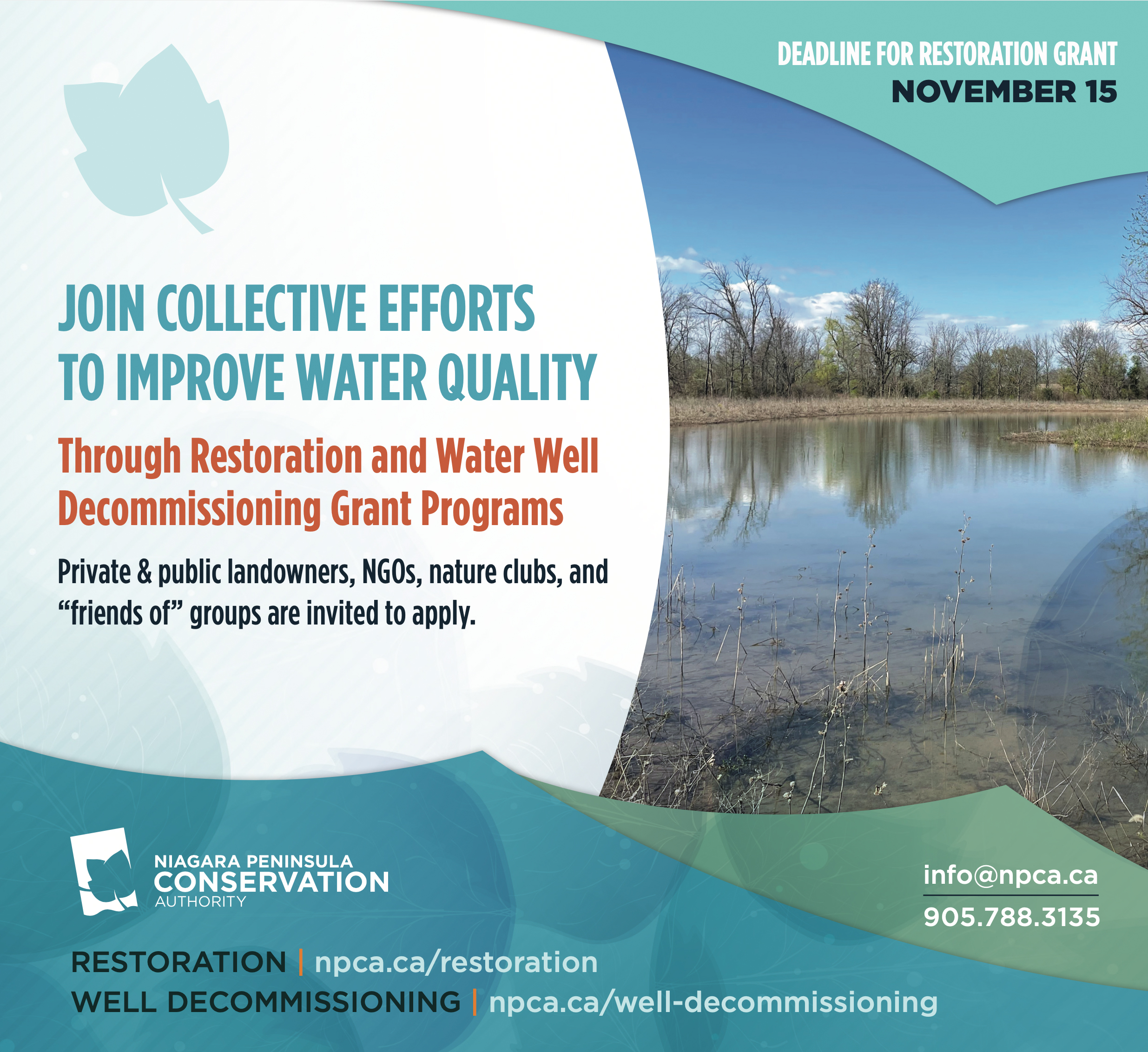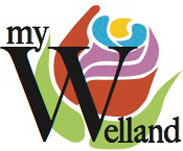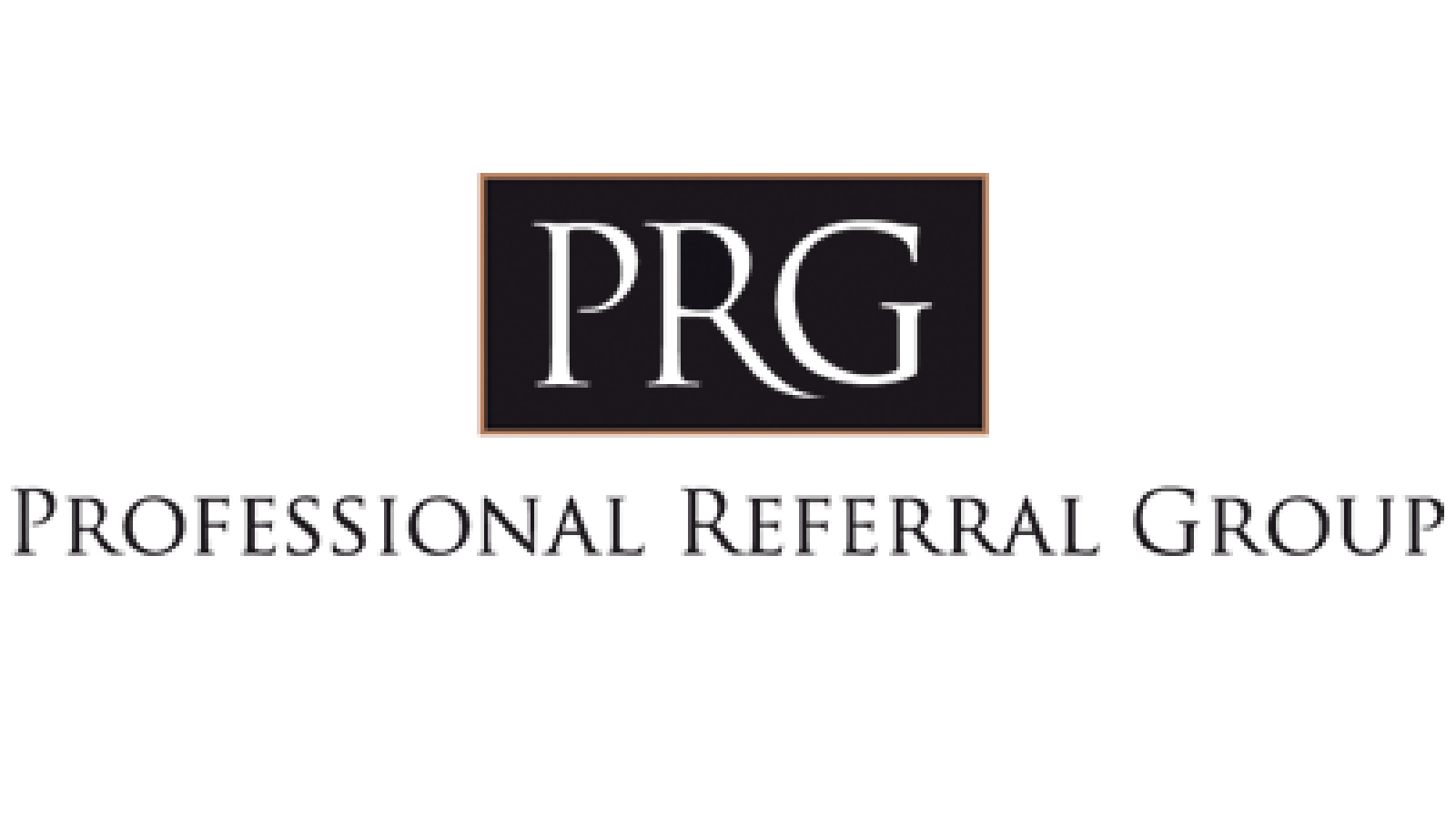 The Niagara Peninsula Conservation Authority (NPCA) is seeking applications for its Restoration and Water Well Decommissioning grant programs for projects in 2022. Selected projects will help improve water quality and wildlife habitat as part of ongoing efforts to restore and preserve the Niagara Peninsula watershed’s natural heritage and water resources.
The Niagara Peninsula Conservation Authority (NPCA) is seeking applications for its Restoration and Water Well Decommissioning grant programs for projects in 2022. Selected projects will help improve water quality and wildlife habitat as part of ongoing efforts to restore and preserve the Niagara Peninsula watershed’s natural heritage and water resources.
“The Restoration Grant Program is one of several ways the NPCA works to improve the health of the Niagara Peninsula watershed’s natural features, as research has shown it is highly degraded,” says Geoff Verkade, Senior Manager of Integrated Watershed Planning and Information Management at NPCA. “With eight categories and a variety of project options ranging from the creation of wetlands and tree plantings to riparian and upland habitat restoration, we welcome private and public landowners, NGOs, nature clubs, and ‘Friends of’ groups to join us in these efforts.”
In 2020, the program saw much success with the planting of 40,900 trees and 2,500 shrubs, reforestation of 18.3 hectares of land, and restoration of 4.74 hectares of wetland, 1.3 hectares of riparian habitat, and 2.9 kilometres of grass waterways. “We continue to build on this momentum and the shared interest in a healthy and resilient watershed,” adds Verkade.
While the Restoration Grant Program seeks to restore and enhance wildlife habitat and forest cover, improving water quality lies at the core of all its projects. The NPCA’s water quality monitoring program’s results indicate that most of the surface waters in the watershed are either poor or impaired. Restricting livestock access to watercourses and reducing animal waste contamination are two examples of eligible projects that will help improve water quality.
The NPCA also offers the Water Well Decommissioning Grant Program for watershed residents, designed to protect groundwater by plugging and sealing abandoned or unused water wells.
“These water wells can be a physical danger to kids and pets, and they represent a direct threat to groundwater supplies,” says Steve Miller, Senior Manager of Water Resources at NPCA. “Since contaminants applied to the surface may easily flow through these open conduits and reach the water table, decommissioning an unused or abandoned water well plugs the pollution pathway and moves us forward in looking to protect the quality of groundwater.”
Residents of the Niagara Peninsula watershed are encouraged to take advantage of these two grant programs and join the NPCA to protect and restore local water quality and diverse habitats.
Applications for Water Well Decommissioning grants are accepted year-round, on a first come, first serve basis. This program provides an 80 per cent grant rate to a maximum amount of $1,000 per well and a maximum of two wells per property. Funding for the program is limited and once funds are exhausted, the program will conclude for the calendar year.
The application intake date for Restoration Grant Program projects to take place in 2022 is fast approaching on November 15. Feasible projects will be eligible for grants of up to $15,000.
Both grants are available to qualifying landowners with lands located within the NPCA jurisdiction. To learn more about the Restoration and Water Well Decommissioning grant programs, or to download the application form, visit npca.ca/restoration or npca.ca/well-decommissioning.
For more information about the Niagara Peninsula Conservation Authority, visit www.npca.ca. Follow on Facebook, Twitter, and Instagram for more updates.
About NPCA:
The Niagara Peninsula Conservation Authority (NPCA) is a community-based natural resource management agency that works to protect, enhance, and sustain healthy watersheds. With 61 years of experience, the NPCA offers watershed programs and services that focus on flood and hazard management, source water protection, species protection, ecosystem restoration, community stewardship, and land management.
The NPCA is one of 36 Conservation Authorities in the Province of Ontario and manages 41 Conservation Areas within the Niagara Peninsula watershed held in public trust for recreation, heritage preservation, conservation, and education. These natural and shared greenspaces marry nature, culture, and adventure to create limitless opportunities for discovery.
 Back to myNiagaraOnline
Back to myNiagaraOnline






















